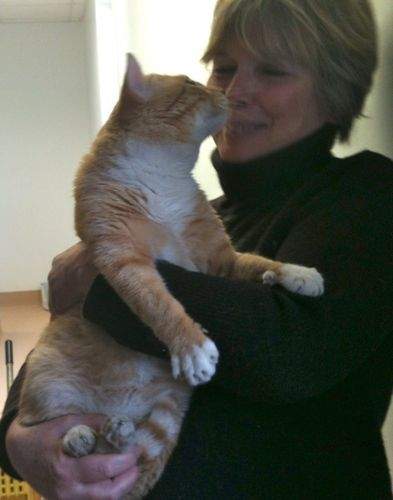Cats with Feline immunodeficiency virus (FIV)

Humane Society of Walden's FIV+ cats
All fees are waived to approved adopters.

How Is FIV Transmitted?
What Are the Symptoms of FIV?
After the initial infection, the cat is often completely asymptomatic for many years. Infected cats who receive supportive medical care and are kept in a stress-free, indoor environment can live relatively comfortable lives for months to years before the disease reaches its chronic stages.
In the event that your cat is exhibiting symptoms you should contact your veterinarian.
- Enlarged lymph nodes
- Fever
- Anemia
- Weight loss
- Disheveled coat
- Poor appetite
- Diarrhea
- Conjunctivitis
- Inflammation of the gums (gingivitis)
- Sneezing
- Dental disease
- Behavior change
- Skin redness or hair loss
- Wounds that don’t heal
- Discharge from eyes or nose
- Inflammation of the mouth (stomatitis)
- Frequent urination, straining to urinate or urinating outside of litter box
Volunteer at the Humane Society of Walden
About Us
The Humane Society of Walden is a no-kill, non-profit safe haven dedicated to helping stray and abandoned cats and dogs. Our animal shelter serves the communities of Montgomery, Walden, Maybrook, Crawford, Wawarsing, Shawangunk, and Mamakating, but will not turn away pets from across the country in need.
Contact Us
Humane Society of Walden
2489 Albany Post Road
Walden, New York 12586
845-778-5115







